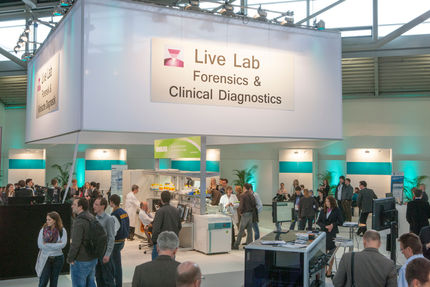Europe challenges USA in stem cell research
A major research project linking the expertise of 20 leading organisations aims to keep Europe at the forefront of human embryonic stem cell research, thanks to a EUR12 million European grant. The ESTOOLS consortium, led by the Centre for Stem Cell Biology at the University of Sheffield in the UK, is a European Union 6th Framework Programme Integrated Project which will advance fundamental understanding and biomedical application of human embryonic stem cells, generating significant benefits in human healthcare.
Leading scientists from seventeen academic institutions and three biotechnology companies involved in ESTOOLS will come together in the Derbyshire Peak District outside Sheffield at the end of August 2006 to launch the new consortium.
Funded for four years from August 2006, the ESTOOLS project will generate knowledge on the fundamental processes governing stem cell differentiation and permit greater standardisation of research with human embryonic stem cells, not only in Europe but throughout the world. It will include the development of robust internationally-agreed standardised protocols and tools for growing and manipulating embryonic stem cell lines, and for monitoring their phenotypic, genetic and epigenetic stability. This knowledge will be disseminated so that the wider scientific community can make the best use of the stem cell lines which already exist.
ESTOOLS will also train young researchers from across Europe to gain expertise in the field of human embryonic stem cells. Summer schools and short training courses will be run, as well as longer exchange programs including an innovative fellowship scheme that will allow up to six young researchers per year to train in the laboratories of some of Europe's top human embryonic stem cell groups.
Professor Peter Andrews, Director of the Centre for Stem Cell Biology at the University of Sheffield, said: "Human embryonic stem cells are set to give us important new insights into cellular development and disease processes in normal human cells. By bringing together the expertise of some of Europe's principal groups working in human embryonic stem cells, ESTOOLS provides unprecedented opportunities for Europe to forge ahead of the USA in this exciting new area of biomedical science."
Most read news
Organizations
Other news from the department science

Get the analytics and lab tech industry in your inbox
By submitting this form you agree that LUMITOS AG will send you the newsletter(s) selected above by email. Your data will not be passed on to third parties. Your data will be stored and processed in accordance with our data protection regulations. LUMITOS may contact you by email for the purpose of advertising or market and opinion surveys. You can revoke your consent at any time without giving reasons to LUMITOS AG, Ernst-Augustin-Str. 2, 12489 Berlin, Germany or by e-mail at revoke@lumitos.com with effect for the future. In addition, each email contains a link to unsubscribe from the corresponding newsletter.






















































